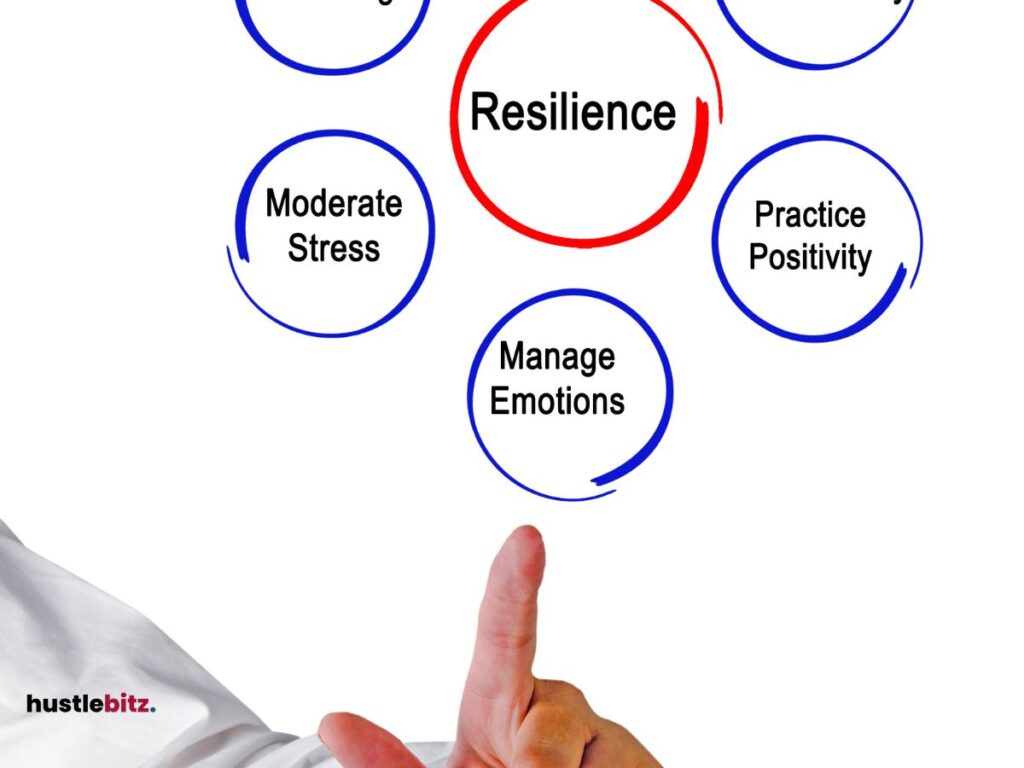Self-care is vital in daily life as it directly influences physical, mental, and emotional well-being. Engaging in self-care practices helps reduce stress, enhances emotional resilience, and improves overall relationships. It also supports mental clarity and productivity, allowing individuals to navigate daily tasks effectively. Regular self-care activities, such as exercise and mindfulness, strengthen the immune system and promote better sleep, contributing to a healthier lifestyle. Establishing boundaries and fostering supportive relationships further enhance the benefits of self-care. Understanding these aspects underscores its significance, revealing deeper insights into how self-care can transform daily living for the better.
Key Takeaways
- Self-care enhances physical, mental, and emotional well-being, essential for effective caregiving and personal fulfillment.
- It reduces stress and improves emotional resilience, fostering healthier relationships and clearer thinking.
- Engaging in self-care activities boosts immune function, sleep quality, and energy levels, contributing to overall health.
- Mindfulness and journaling practices promote emotional processing and clarity, leading to better decision-making.
- Building supportive relationships through self-care creates a sense of community and belonging, enhancing resilience during challenges.

Understanding Self-Care
Self-care encompasses a range of intentional practices aimed at enhancing one’s physical, mental, and emotional well-being. For those who are dedicated to serving others, understanding and implementing self-care is vital. The importance of self-care cannot be overstated; it fosters resilience and equips individuals with the energy and clarity needed to support others effectively.
When caregivers prioritize their own health, they not only enhance their capacity to assist others but also model healthy behavior, contributing to a culture of well-being.
Self-care is important because it directly impacts mental health. Engaging in self-care activities can help mitigate stress, reduce anxiety, and promote a positive mindset. This is particularly crucial in high-stress environments where the wellbeing of others relies on the caregiver’s ability to remain balanced and focused.
There are numerous ways to practice self-care, ranging from physical activities like exercise and nutrition to mental practices such as mindfulness and journaling. Establishing a routine that incorporates these elements can lead to significant improvements in overall health and happiness.
Furthermore, self-care practices foster a deeper understanding of one’s own needs, paving the way for more compassionate and effective service to others.
Benefits of Self-Care

Engaging in self-care practices yields numerous benefits that enhance overall well-being and resilience, ultimately enabling individuals to navigate life’s challenges more effectively. Self-care is important not only for personal growth but also for those who seek to serve others. By prioritizing self-care, individuals can improve their mental and physical health, leading to a more balanced and fulfilling life.
The following table highlights key benefits of self-care practices:
| Benefit | Description |
| Reduced Stress | Engaging in self-care activities helps alleviate stress, allowing individuals to approach challenges with a clearer mind. |
| Enhanced Resilience | Regular self-care fosters emotional resilience, equipping individuals with the tools to cope with adversity. |
| Improved Relationships | By caring for oneself, individuals cultivate a healthier mindset, which positively affects their interactions with others. |
When one prioritizes self-care, the ripple effects can extend beyond oneself, creating a more compassionate and supportive environment for those around them. As individuals invest in their mental and physical health, they become better equipped to assist others, ultimately fostering a community rooted in well-being. Recognizing the profound impact of self-care is vital for both personal fulfillment and the ability to serve others effectively. In essence, self-care is not an indulgence; it is a critical component for sustaining overall well-being, enabling individuals to flourish while uplifting those in their lives.
Emotional Well-Being

Prioritizing self-care significantly contributes to emotional well-being, as it equips individuals with the tools necessary to manage their feelings and navigate life’s emotional complexities. An effective self-care routine is essential for fostering emotional health, enabling individuals to respond to stressors with resilience and clarity. By consciously investing time in self-care practices, we empower ourselves to better understand our emotions, which is crucial for maintaining well-being.
In a world where demands can often overshadow personal needs, it is vital to prioritize self-care as a means of cultivating emotional strength. Activities such as mindfulness, journaling, or engaging in creative pursuits can create a sanctuary for reflection and emotional processing. These practices not only help in managing stress but also foster a deeper connection with oneself, allowing for a more compassionate approach to interactions with others.
Moreover, emotional well-being is intrinsically linked to the capacity to serve others. When we take the time to nurture our emotional health, we enhance our ability to empathize and support those around us. This reciprocal relationship underscores the importance of self-care as a foundation for meaningful connections.
Ultimately, prioritizing self-care is not a selfish act; it is a necessary investment in our emotional well-being. By consciously integrating self-care into our daily lives, we can cultivate a more balanced emotional landscape, leading to healthier relationships and a more fulfilling life.
Physical Health Impact

The impact of self-care on physical health is profound, as it encompasses practices that promote overall well-being and enhance the body’s ability to function optimally.
Self-care means prioritizing actions that not only benefit oneself but also enable individuals to better serve others. Engaging in activities that foster physical health is essential for maintaining energy levels and resilience in the face of daily challenges.
Prioritizing self-care can lead to significant improvements in one’s physical health, including:
- Enhanced Immune Function: Regular self-care practices can strengthen the immune system, making the body more resilient to illness.
- Improved Sleep Quality: Engaging in relaxation techniques and maintaining a balanced routine fosters better sleep, crucial for recovery and energy replenishment.
- Reduced Stress Levels: Physical activities, such as yoga or walking, can lower stress hormones, promoting a state of calm that benefits both physical health and mental well-being.
- Increased Longevity: Consistent self-care practices contribute to a healthier lifestyle, potentially extending lifespan and enhancing quality of life.
Mental Clarity and Focus
Consistently practicing self-care can significantly enhance mental clarity and focus, enabling individuals to navigate daily tasks with greater efficiency and effectiveness.
In a world where mental health issues are increasingly prevalent, prioritizing self-care means taking proactive steps to cultivate a sound mind. This is particularly vital for those who serve others, as a clear mind fosters better decision-making and enhances interpersonal interactions.
Regular self-care activities that help bolster mental clarity can include mindfulness practices, such as meditation and deep breathing exercises, which encourage individuals to reconnect with their inner selves. Engaging in physical activities, like yoga or walking, can also promote mental well-being, allowing for a clearer thought process.
Moreover, ensuring adequate rest and maintaining a balanced diet are foundational elements of effective self-care that directly impact cognitive function.
The importance of self-care in enhancing focus cannot be overstated. When individuals prioritize their mental health, they are better equipped to manage stress and prevent burnout, which is essential in any service-oriented role.
Building Resilience

Building resilience is essential for navigating life’s challenges, as it equips individuals with the tools necessary to adapt and thrive in the face of adversity. Engaging in self-care can help cultivate resilience, significantly enhancing both mental and physical well-being. By prioritizing self-care, individuals can better manage stress and anxiety, ultimately improving their mental health and emotional well-being.
Here are four effective strategies to build resilience through self-care:
- Practice Mindfulness: Engaging in mindfulness techniques, such as meditation or deep-breathing exercises, can help center your thoughts and reduce stress. This practice fosters emotional regulation and enhances overall mental clarity.
- Establish Healthy Boundaries: Setting boundaries in personal and professional relationships protects your energy and mental space. This helps prevent burnout and allows for more focused and purposeful interactions.
- Cultivate Supportive Relationships: Surrounding yourself with supportive individuals who uplift and inspire you contributes to resilience. Building a network of trusted friends or mentors can provide invaluable emotional support during challenging times.
- Prioritize Physical Health: Regular exercise, a balanced diet, and sufficient sleep play crucial roles in resilience. Caring for your physical health not only boosts energy levels but also fortifies your mental strength against life’s adversities.
Enhancing Productivity

Effective self-care practices not only foster resilience but also play a significant role in enhancing productivity by enabling individuals to focus and perform at their best. By prioritizing self-care in your daily routine, you cultivate an environment conducive to both personal and professional growth. This commitment to well-being allows you to serve others more effectively, as you are better equipped to give your time and energy.
Engaging in activities that promote overall health—such as regular exercise, balanced nutrition, and adequate rest—directly impacts your physical and mental health. When you invest in these essential aspects of self-care, you enhance productivity by improving cognitive function and emotional stability. This leads to sharper focus, better decision-making, and increased motivation, all of which are critical for those who desire to serve their communities and organizations.
Moreover, incorporating mindfulness and stress-reduction techniques into your daily routine can significantly reduce burnout and fatigue. This, in turn, allows you to maintain a sustainable pace in your work and volunteer efforts.
Final Thoughts
Prioritizing self-care is essential for maintaining overall well-being and building resilience in daily life. By incorporating regular self-care practices, you can improve your physical health, mental clarity, and emotional stability, which are crucial for navigating life’s challenges effectively. Self-care not only benefits you personally but also enhances your ability to serve others with energy and compassion. Embrace these practices to create a more balanced, productive, and fulfilling life.




